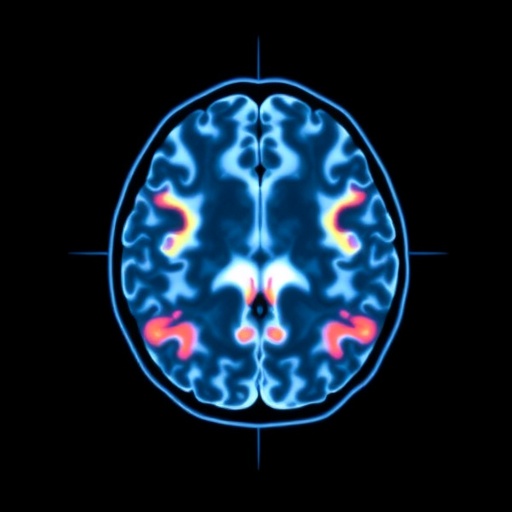In a striking development in neuro-oncology, the recent outcomes of the National Cancer Institute (NCI)-sponsored phase II/III trial NRG-BN007 have cast doubt on the promise of combining dual immune checkpoint blockade with established radiotherapy protocols in treating newly diagnosed glioblastoma patients harboring unmethylated MGMT promoters. Conducted by NRG Oncology, the study sought to determine whether the addition of ipilimumab and nivolumab—two immune checkpoint inhibitors targeting CTLA-4 and PD-1 respectively—could surpass the longstanding standard of care consisting of radiation therapy coupled with temozolomide (TMZ) chemotherapy. Contrary to initial hopes, the trial demonstrated no significant improvement in progression-free survival (PFS) for this notoriously hard-to-treat patient population.
Glioblastoma remains the most aggressive primary brain malignancy found in adults, presenting clinicians with formidable therapeutic challenges. The prognosis is bleak, frequently culminating in median survivals barely exceeding a year despite maximal surgical debulking followed by concurrent radiation and TMZ chemotherapy. This grim outlook is further compounded in tumors exhibiting unmethylated O6-methylguanine-DNA methyltransferase (uMGMT) promoters, which are notably resistant to TMZ’s alkylating effects. Approximately 60% of glioblastoma cases fall under this uMGMT classification, underscoring a critical unmet need for more effective systemic therapies that transcend current chemotherapy limitations.
.adsslot_lmKjfhXWY9{width:728px !important;height:90px !important;}
@media(max-width:1199px){ .adsslot_lmKjfhXWY9{width:468px !important;height:60px !important;}
}
@media(max-width:767px){ .adsslot_lmKjfhXWY9{width:320px !important;height:50px !important;}
}
ADVERTISEMENT
NRG-BN007 enrolled 159 eligible participants, who were stratified by recursive partitioning analysis class and planned use of Tumor Treating Fields, a device delivering alternating electric fields purported to disrupt tumor cell division. Patients were randomized to receive either the experimental combination of ipilimumab and nivolumab or the conventional approach of radiation plus temozolomide. Importantly, the study was powered to detect a hazard ratio for PFS of 0.58 or less—a statistically significant threshold that would warrant progression to a phase III evaluation of overall survival impact.
After 100 centrally adjudicated progression events, a critical preplanned interim analysis was performed. The data revealed median progression-free survival to be 7.7 months in the immunotherapy arm compared to 8.5 months in the temozolomide arm. The hazard ratio favored the control arm at 1.47 (70% confidence interval 1.19–1.83), and the one-sided p-value was 0.96, indicating no meaningful difference. Survival data remain immature with over half the cohort still alive, but initial median overall survival figures hovered around 13 months for both groups, with no statistically significant divergence detected.
These findings have immediate clinical implications. The failure to demonstrate superior PFS in phase II effectively precludes the transition to a larger phase III study focused on overall survival, thereby curtailing further assessment of this immunotherapy combination in uMGMT glioblastoma. It marks a sobering reminder of the intrinsic challenges in modifying the glioblastoma tumor microenvironment, which is characterized by robust immunosuppressive features and the blood-brain barrier’s protective effects.
Despite these setbacks, researchers remain undeterred, emphasizing the vital importance of ongoing biomarker analyses currently underway. These in-depth investigations aim to discern whether specific molecular or immunologic subsets of patients may still derive benefit from checkpoint blockade, facilitating a more personalized approach to immunotherapy in glioblastoma. Subgroup analyses and exploratory endpoints leveraging genomic, transcriptomic, and immune profiling data will be pivotal in refining future therapeutic strategies.
Andrew B. Lassman, MD, MSc, the lead author of the NRG-BN007 manuscript and a prominent neuro-oncologist at Columbia University’s Vagelos College of Physicians & Surgeons, underscored the commitment within the field to persistently explore innovative avenues to improve outcomes in MGMT-unmethylated glioblastoma. He highlighted the significance of the trial’s results in guiding clinical decision-making and redirecting resources towards potentially more fruitful therapeutic avenues.
The NRG Oncology cooperative group orchestrating this study integrates expertise from a broad spectrum of disciplines, including radiation oncology, medical oncology, neurosurgery, pathology, and biostatistics. Established in 2012, this extensive clinical trials network leverages more than 1,300 research sites globally, primarily within the United States and Canada, to conduct rigorously designed, multi-institutional studies aimed at advancing cancer care. NRG Oncology continues to be financially underpinned primarily by the National Cancer Institute and collaborates closely with pharmaceutical partners such as Bristol Myers Squibb, which provided support under a Cooperative Research and Development Agreement.
Looking forward, the glioblastoma landscape demands parallel investigations into novel therapeutic modalities, including but not limited to tumor-targeted viral therapies, metabolic interventions, and adaptive immunotherapies such as CAR-T cells or neoantigen vaccines. These approaches face technical obstacles but hold promise to unsettle the tumor’s immunosuppressive fortress. Furthermore, enhancing drug delivery across the blood-brain barrier remains a critical focus to maximize treatment efficacy.
In sum, the NRG-BN007 trial serves as a potent scientific and clinical inflection point, elucidating that dual immune checkpoint blockade with ipilimumab and nivolumab, in combination with radiation, does not enhance progression-free survival compared to standard temozolomide and radiation in newly diagnosed uMGMT glioblastoma patients. While this closes one door, it galvanizes the field to refine biomarker-driven patient selection and pursue alternative immunotherapeutic strategies to improve the dismal prognosis of this unforgiving disease.
Subject of Research: The efficacy of dual immune checkpoint inhibitor therapy combined with radiation versus temozolomide and radiation in newly diagnosed MGMT-unmethylated glioblastoma.
Article Title: Dual Immune Checkpoint Blockade in MGMT-Unmethylated Newly Diagnosed Glioblastoma: NRG Oncology BN007, a Randomized Phase II/III Clinical Trial.
News Publication Date: August 8, 2025.
Web References:
Clinical Trial Registry: https://clinicaltrials.gov/study/NCT04396860
Published Article DOI: https://doi.org/10.1200/JCO-25-00618
References:
Lassman AB, Polley MC, Iwamoto FM, Sloan AE, Wang TJC, Aldape KD, et al. Dual Immune Check Point Blockade in MGMT-Unmethylated Newly Diagnosed Glioblastoma: NRG Oncology BN007, a Randomized Phase II/III Clinical Trial. J Clin Oncol. 2025 Aug 8:JCO2500618. doi: 10.1200/JCO-25-00618. Epub ahead of print. PMID: 40779733.
Keywords: Glioblastomas, Brain Cancer, MGMT-Unmethylated, Immunotherapy, Ipilimumab, Nivolumab, Radiation Therapy, Temozolomide, Progression-Free Survival, Neuro-Oncology, Clinical Trial, NRG Oncology
Tags: dual immune checkpoint inhibitionglioblastoma treatment challengesipilimumab and nivolumab combination therapyneuro-oncology research developmentsnovel treatment strategies for brain tumorsNRG Oncology clinical studiesphase II/III clinical trialsprogression-free survival in glioblastomaradiation therapy and temozolomidesystemic therapies for glioblastomatherapeutic resistance in glioblastomaunmethylated MGMT promoter glioblastoma





